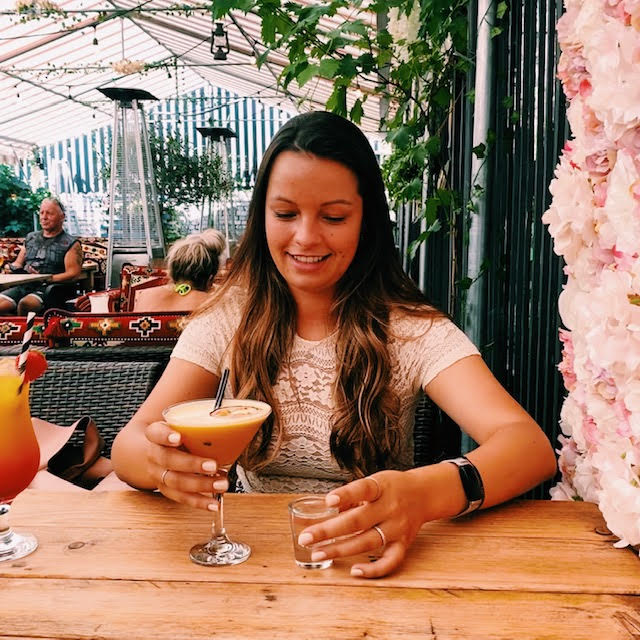I’ve heard and seen lots about how amazing living an intentional life is out there, mostly on the internet. And sometimes it’s thrown about too much so we don’t truly understand the meaning of it.
First of all, let’s define the meaning of living an intentional life. It basically means that you are fully aware of and understand your own values and beliefs and are living a life that is mindful to them. You reflect all of those beliefs and are defined by all of your actions.
Sounds a bit complicated? Yeah, let’s break it down.
Why do we feel it’s necessary to live an intentional life?
Intentional living will essentially bring peace and simplicity to our lives. If we are defined by our actions and beliefs, then we are being as honest with ourselves and others as possible. Honesty can be very refreshing and freeing and can earn the respect of many people.
While we are living an intentional life we may have more exciting experiences. Because we are realigning our beliefs by wanting to live intentionally, we change our behaviour and open the door for more experiences through our actions.
Living an intentional life can also help to improve your self worth. Knowing you are living mindfully and intentionally can be a huge self esteem booster. However, you are still whole even if you’re not living intentionally.
Aiming to live an intentional life gives us a purpose to live up to and part of life is growing into a person we want to be!
It’s also just a fun thing to do and you don’t really need a reason apart from making you happy to live the life you want.
So what are the key fundamentals of how you can live an intentional life?
Step 1: Build Awareness
You must increase your awareness of where you are in life now and how you got to it.
If you’re the one who created the results you’ve already made, then you know you can create new results for yourself. Think about how far you’ve already come and then picture the possibilities that are held within you for your future.
When we blame our results on other people or things, it gives away the control to change the things we need to live an intentional life. When we blame others too often, we get stuck in a mindset that we lack the power to change which creates obstacles that don’t allow for solutions.
Be more aware that you are in control of creating the results you need and want to be able to live an intentional life.
Think about what thoughts, feelings and actions have created your current results i.e. how accomplished you are now and recognise that you are where you are because you’ve had the power all along to get you there.
Step 2: Make Decisions
Once you’ve got the awareness of the control you have, you must start making decisions on the life you want to live.
Think about where you want to go, emotionally, spiritually and physically.
What do you want to do? Are there things you want to accomplish, changes you want to make?
And who do you want to be? To grow as a person we must know who we want to become. What values and beliefs do you have? Are you abiding by those beliefs and acting in response to them?
Where is the end mark that you want to get to? What is the ideal place where you’ll believe you can live an intentional life?
For example, you may feel like you’ll be living intentionally when you conquer your symptoms of anxiety and start to feel better. We can’t completely remove the negative emotions that it brings into your life, even though that would be great, right? But we can remove the suffering that those emotions cause. We can remove the irrational thoughts, the irritability and the sense of dread by making the decision to get some help and working out how to manage them.
At this stage, we also need to know exactly what we’re working towards so be as specific as you can with what you want and where you want to go.
Step 3: Create a Plan
Knowing where we want to go in life is great. Not many of us have it all figured out; it’s even rarer that we know how to actually get there.
So we’ve got to come up with a game plan. How are you going to get from where you are now to your specific goal?
Think of it like you’re travelling somewhere. You know your end destination but you need to know your route, the roads you’re driving on and the turns you’re going to take. How are you going to get from A to B?
Brainstorm ways in which you can make it there and list all of the steps in between so you know exactly how to get to your goal.
Include the possible obstacles you might face in your plan. Plan for these obstacles and make a strategy to include them. Make time in your calendar for any interruptions or setbacks you might face. Use that time to catch up on what you missed when you experienced these interruptions. That way you’re staying on track and planning ahead.
Include steps that you don’t know how to complete yet and create a step to figure it out. You may not know what step 50 is or how you’re going to complete it but you know how to conquer step 2. Work your way through it gradually and allow yourself to be flexible enough to change your plan as you progress.
Step 4: Take Action
The primitive brain is programmed to seek pleasure and avoid pain. It doesn’t like for you to do anything that requires too much effort such as working out or going to your dreaded therapist appointment.
Your prefrontal brain overrides it with it’s desire to get fitter or improve your mental wellbeing. This is the part of your brain that wants to live an intentional life and has the motivation and targets to get there.
To truly live intentionally, we have to be fully committed to making the changes. We can’t turn it on and off and expect our brain to do the work for us because our primitive brain will take over and we won’t get anywhere.
To continue using our prefrontal brain, we must be committed to our end goal and know that we need to fight the primitive instincts by taking as much action as possible.
We commit to trying over and over so that when we fail, we keep going and try to continue with our plan.
When we stop committing, our primitive brain makes excuses and self sabotages. It tells us that we’ve failed because life is too busy and is getting in the way. It tells us we don’t have the time to reach and work towards our end goal. It tells us we’re not ready and this isn’t meant to be.
Whatever the goal is, you can always honour it by being committed to the end result and overriding the primitive brain by constantly taking action.
Using anxiety as an example again here, when our brain thinks we’re at risk, it becomes more aware of the things around us. People who suffer from anxiety already have a heightened awareness of everything around them as their brain is on high alert most of the time.
When anxiety symptoms arise, that is our primitive brain wanting to save you from these possible risks. Knowing and finding methods that can reduce the symptoms puts your prefrontal brain to work to override the primitive brain. Committing to preventing the symptoms from rising and following through with your coping mechanisms is an example of taking constant action and trying over and over again to beat your anxiety.
Step 5: Evaluate
With each step toward your goal, you must evaluate what worked and what didn’t so that you can progress.
Being aware of what worked well will enable you to take that forward into future steps and apply it there.
Knowing what didn’t work will show you what you need to avoid, adjust or reevaluate.
You can figure out what is next and how to approach the next step by evaluating your previous steps and how you got there.
Intentional Life Results:
After all of this, you may think that you’ll be reaching a completely happy life where negativity and downfalls don’t happen.
That is not right.
What results will occur:
- You’ll be on your way to reaching (or have reached) your initial goal
- You’ll experience more love and self worth
- More confidence
- More fulfillment
So think about what part of your life that you want to focus on and start your first step of creating an intentional life.














